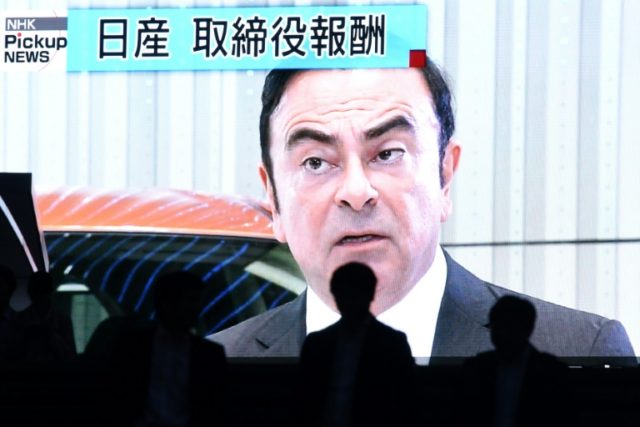Paris (AFP) – The heads of automakers Renault, Nissan and Mitsubishi will meet Thursday for the first time since the shock arrest of Carlos Ghosn threw their fractured alliance into the open.
Detained in Japan on allegations of financial misconduct, Ghosn’s arrest has revealed brewing resentment and unrest within the Franco-Japanese partnership.
The talismanic Ghosn was seen as the glue binding together a complex three-way structure which counts as the world’s top-selling auto company, with some 10.6 million vehicles rolling off the production lines each year.
Nissan chief executive Nissan Hiroto Saikawa and Renault’s interim boss Thierry Bollore are expected to participate in the meeting in Amsterdam via video link, sources told AFP.
Mitsubishi executive boss Osamu Masuko will also join by video, the Nikkei daily reported.
Issues of governance are not meant to be raised in the meeting and no vote is planned, sources told AFP.
Renault is the dominant member of the alliance, holding 43 percent of the shares in Nissan, but the Japanese firm outsells its French counterpart — sparking frustration in Tokyo.
French Finance minister Bruno Le Maire on Tuesday warned that there was no question of a change in the balance of power between Renault, which is 15 percent owned by the French state, and its Japanese partners.
“There is a partnership which seems good to me, there is a good balance. There are cross-shareholdings between Renault and Nissan which should not change,” Le Maire said on France’s LCI news channel.
The rules of the alliance, based in the Netherlands, state that Renault and Nissan each appoint five board members each but it is the French company which names the CEO while Nissan chooses the deputy.
The CEO holds a decisive vote in the case of a tie in board decisions.
While Ghosn has been ousted from Mitsubishi and Nissan, he remains CEO and chairman of Renault, albeit “incapacitated” for the moment, according to the French manufacturer.
Le Maire insisted Renault should retain the top position of the alliance: “This rule should not change”.
The partnership uses shared factories and joint purchasing power to keep down costs.
These arrangements are not under threat, according to statements from both the Japanese and French sides.

COMMENTS
Please let us know if you're having issues with commenting.